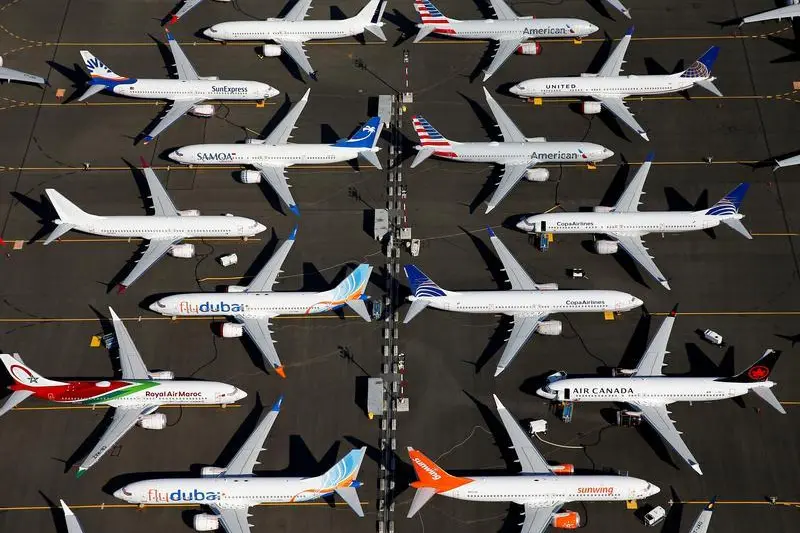PHOTO
NEW YORK, (Reuters Breakingviews) - Boeing’s financial disruption from the grounding of its 737 MAX is far from maxed out. The aerospace giant is taking an after-tax charge of $4.9 billion to compensate airlines for the idling of the plane. Slowing its production line will add another $1.7 billion of costs. That tally is bound to grow: company hopes for a return to service in the fourth quarter look optimistic.
The $200 billion group has been under pressure to acknowledge the likely hit to its bottom line as planes remain on the ground months after two fatal crashes, and the toll on airlines mounts. Southwest Airlines on Thursday said it was extending flight cancellations stemming from the MAX to early November, matching American Airlines and United Airlines, while European budget carrier Ryanair is halving its growth plans for 2020. China’s three big state-owned airlines are among the customers that have demanded compensation.
The charge will reduce revenue and pretax earnings by $5.6 billion in the second quarter. That seems reasonable. Analysts at Bank of America Merrill Lynch estimate that a 6-month grounding would require $3 billion in compensation, while Boeing’s assumption of a fourth-quarter return to service implies the idle period will be more like nine months.
That schedule may be optimistic though. Boeing initially targeted late April for submitting its proposed fix of anti-stall software implicated in the MAX accidents that caused the grounding. But the company last month said simulator tests had uncovered a separate flaw. It may not submit its fix to regulators before September, and the U.S. Federal Aviation Administration and foreign regulators will want to examine it very thoroughly.
Boeing meanwhile has cut production of the MAX by 20% to 42 a month, reducing efficiency and forcing it to pay more for parts. The company run by Dennis Muilenburg now estimates costs for the program have risen by $2.7 billion in the first half. That sum will be spread over 3,100 aircraft on order, but it will reduce the operating profit on the 737 MAX - Boeing’s highest-margin product - by close to $1 million a plane, or 6% based on Moody’s estimate. That only increases as long as the grounding continues. Investors, who have seen $35 billion of market value erased already, should brace for further turbulence.
CONTEXT NEWS
- Boeing said on July 18 that it would take an after-tax charge of $4.9 billion in the second quarter to cover “potential concessions and other considerations for disruptions related to the 737 MAX grounding and associated delivery delays.” The charge will reduce revenue and pretax earnings by $5.6 billion for the period.
- The company also said estimated production costs for the 737 MAX increased by $1.7 billion in the second quarter because of a longer-than-expected reduction in the build rate. The company in April reduced production of the single-aisle aircraft to a rate of 42 a month from 52 previously, and said production costs increased by $1 billion in the first quarter.
- Boeing said it continues to work with aviation regulators to return the aircraft to service. It will report second-quarter results on July 24.
(Editing by Clara Ferreira Marques and Katrina Hamlin)
© Reuters News 2019




















